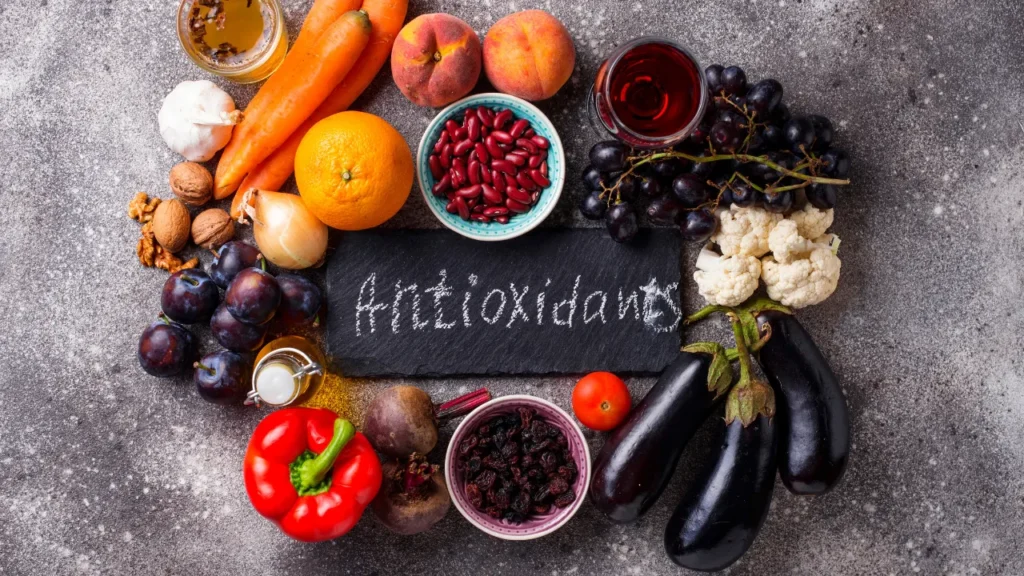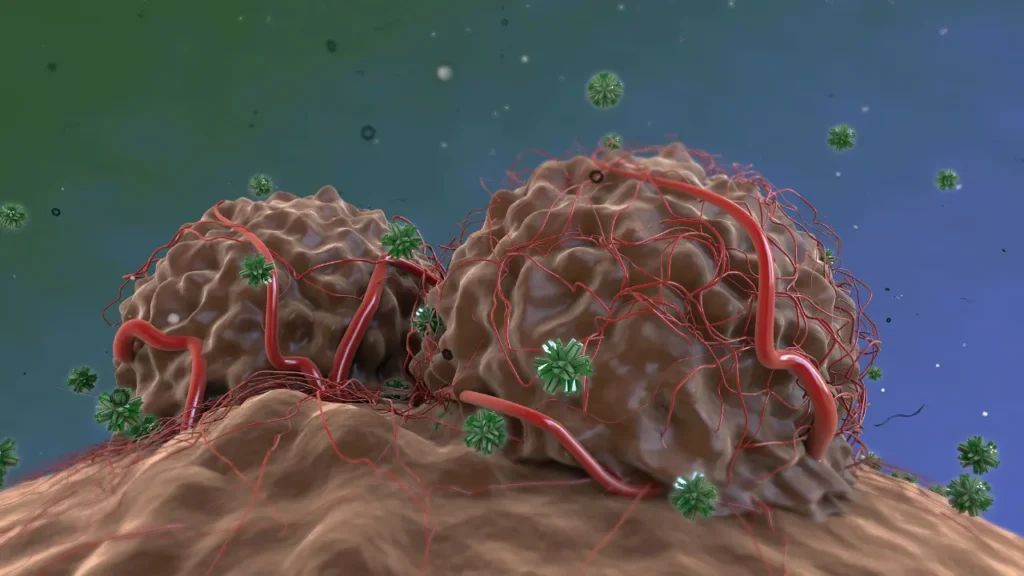Tansy also known as Tanacetum vulgare scientifically has had a record of in traditional treatment for different purposes including cooking and therapy. The plant has an evergreen ability to produce bright yellow flowers. It has taken its place in the field of nootropic supplements these days, particularly as a dietary supplement. Nootropics are increasingly taken up by those who want to experience better awareness and concentration.
The supplement can be beneficial to the patients if applied correctly in the right dosage and interactions. However, wider research and awareness are much needed to avoid unwanted side effects. This piece covers aspects of Tansy, the nutritional properties that explain its positive effect on the human mind, and the right way of using it as a nootropic supplement.
You May Also Like:
Keep Your Brain Young With the 5 Most Powerful Nootropic Supplements
ONNIT Supplements Antarctic Krill Oil Reviewed: A Leading Memory Support Supplement
Tansy: Benefits, Dosage, Side Effects, Drug Interactions, and Other Important Information is an original (NootropicsPlanet) article.
Nature of Tansy
Tansy (Tanacetum vulgare) is a species of the Asteraceae family that is a perennial herbaceous plant, characterized by its button-shaped yellow flowers and fernish foliage. It is native to Eurasia but has been spread through the continent and transcending Australia and other regions. Tansy was used to prepare food, as a natural insect repellent, and also in traditional medical practice for a wide spectrum of ailments.
This unique aroma of Tansy is attributable to a multi-component essential oil in which varied quantities of various elements are present and their biological actions are subject to the essential oil’s composition. However, the safety issue concerning Tansy is the presence of thujone, a toxic component found in the plant.
Health Benefits of Tansy
Research focused on Tansy revealed some medical merits in terms of cognitive enhancement. These include:
1. Antioxidant and Anti-inflammatory Effects:
Stress and inflammation in the brain can be reduced by Tansy, which has the ability to shed light on diseases of the nervous system and age-related memory loss.
2. Enhanced Alertness and Focus:
The interaction of Tansy’s active chemicals with neurotransmitter systems may be a great source of alertness and concentration which may be helpful to students, workers, or anyone who needs to stay focused during their activities.
3. Neuroprotective Properties:
The compounds of Tansy might have a neuroprotective quality that covers the nerve cells from various kinds of damage which slows down the aging of the brain and memory loss.

Chemistry of Tansy
The chemistry of Tansy is very intricate and complex. These include active constituents that account for its medicinal and nootropic properties. Central to Tansy’s chemical profile are several key compounds, including: Thujone. This compound is a mixture of ketone and monoterpene and is one of the three major biologically active compounds represented by Tansy. Thujone has been observed to be toxic to the nervous system when it is in high concentrations, but on the other hand, it is supposed to have energizing effects when it is in a low dosage.
• Camphor: A sesquiterpene, camphor, is known for its fresh and herby smell and has been demonstrated to have a stimulatory effect on the nervous system.
• Borneol: This molecule is a sedative, anti-inflammation, and pain killer, as well as possessing therapeutic potential.
• Flavonoids: Tansy possesses many different flavonoids. Flavonoids are powerful antioxidants that can scavenge radicals, thus reducing oxidation which occurs at the cellular level, including within neurons.
• Terpenoids: Tansy is also a rich source of terpenoids that demonstrate an array of biological activities, such as anti-inflammatory and neuroprotective effects.
Tansy shows synergistic effects on various bodily mechanisms and potential as a nootropic. However, there is a need for scientific investigation in this area.
Physiological Mechanism of Action of Tansy
The physiological mechanism of action of Tansy in cognitive enhancement and nootropic effects involves several pathways:
• GABA Receptor Antagonism: Thujone, a main active ingredient in Tansy, is identical to an antagonist toward GABA (gamma-aminobutyric acid) receptors. Thujone works by disrupting the activity of GABA, raising the awareness level, and lowering the weariness feeling.
• Antioxidant Activity: Tansy is rich in flavonoids that can destroy free radicals, thus giving protection to cells from oxidative damage. This antioxidant activity is one of the most effective ones for neuronal cells since it helps them maintain normal function along with the integrity of cells, which may reduce the risk of cognitive disorders.
• Anti-inflammatory Effects: Tansy contains terpenoids which may address inflammation inside the brain. As mentioned, neuroinflammation is the cause of various cognitive problems and neuro-degenerative diseases. Tansy might inhibit the inflammatory process and enhance brain cells’ performance.
• Neuroprotection: Besides its antioxidant and anti-inflammatory effects, Tansy also seems to have a direct effect in protecting neuronal cells. This could be the modulation of cell signaling pathways which regulate cell survival and apoptosis (controlled cell death) thereby providing a defensive system for brain cells which otherwise would lead to cognitive deterioration.
The exact mechanisms in which these substances communicate with the brain physiology and their implications for the improvement of cognitive enhancement are still under debate. Research on this underlying mechanism should provide us clues to Tansy’s effectiveness and identify the safest and most effective dosage for its use as a nootropic supplement.

Optimal Dosage of Tansy
The appropriate amount of Tansy for cognitive improvement has not been clearly determined because of limited scientific studies aiming at specific cognitive enhancement. Also, the dosage of Tansy used in traditional methods may not be able to give one the desired nootropic effects. It is necessary to be careful as bioactive substances like thujone are quite dangerous in high doses. Thus, you should always seek professional medical advice if you plan to include this supplement in your diet.
Side Effects and Precautions of Tansy
Though Tansy can have a healing element to it, it is bound to have side effects of any kind when it is not consumed in the right amount. High concentrations of Tansy which are rich in thujone, may cause convulsions, as well as muscle cramps. Other side effects such as liver damage, allergy, and gastric disturbance may occur as well.
Women who are pregnant or breastfeeding are advised not to use Tansy for safety reasons as it can cause miscarriage and other harm. Individuals who have previously had seizures or those currently on anti-seizure medications should also take extra precautions and avoid Tansy as it directly affects the action of these drugs.
Potential Substance Interactions of Tansy
Tansy may interact with a number of drugs, herbal remedies, and dietary supplements. It can counteract the effects of sedatives, anticonvulsants, and any other medication that acts on the central nervous system by having an antagonistic effect on GABA receptors.
Furthermore, because of its possible effects on liver enzymes, some medications may no longer be safe or effective because of the changes in the process of metabolism. Tansy should never be taken in conjunction with any prescription or supplement without first consulting a healthcare provider, especially if the medication or supplement affects the liver or nervous system.

Responsible Use of Tansy
Tansy presents an intriguing option for those interested in nootropics for enhancing cognitive functions. However, its use must be approached with an understanding of its chemical complexity, potential health benefits, and risks. Optimal dosage, awareness of side effects, and knowledge of possible substance interactions are essential for the responsible use of Tansy as a nootropic supplement.
Tansy:
Conclusion
Tansy has a scientific name of Tanacetum vulgare and it is often used in cooking. Nowadays, tansy is being explored as a nootropic supplement. It is believed to increase alertness and focus because tansy contains bioactive substances that can interact with the neurotransmitter system. This means tansy can be a great source of alertness and focus if you are looking to have better focus for your day-to-day tasks.
Besides, it can also protect your neuronal cells as it sets up a defensive system for the brain cells and prevents them from deteriorating. The optimal dosage is yet to be standardized due to varying uses and individual needs. You also need to take note that tansy may also bring side effects when consumed in higher than normal concentrations. You also have to check if you have any allergic conditions to this supplement to ensure your safety.

References:
- Tanacetum Vulgare L. (Tansy) as an Effective Bioresource with Promising Pharmacological Effects from Natural Arsenal. Retrieved from:https://pubmed.ncbi.nlm.nih.gov/34015423/
- In Vitro Cultivation of Tansy (Tanacetum Vulgare L.): A Tool for The Production of Potent Pharmaceutical Agents. Retrieved from:https://pubmed.ncbi.nlm.nih.gov/33244630/
- Influences Of Chemotype and Parental Genotype on Metabolic Fingerprints of Tansy Plants Uncovered by Predictive Metabolomics. Retrieved from:https://pubmed.ncbi.nlm.nih.gov/37468576/
Important Note: The information contained in this article is for general informational purposes only, and should not be construed as health or medical advice, nor is it intended to diagnose, prevent, treat, or cure any disease or health condition. Before embarking on any diet, fitness regimen, or program of nutritional supplementation, it is advisable to consult your healthcare professional in order to determine its safety and probable efficacy in terms of your individual state of health.
Regarding Nutritional Supplements Or Other Non-Prescription Health Products: If any nutritional supplements or other non-prescription health products are mentioned in the foregoing article, any claims or statements made about them have not been evaluated by the U.S. Food and Drug Administration, and such nutritional supplements or other health products are not intended to diagnose, treat, cure, or prevent any disease.


